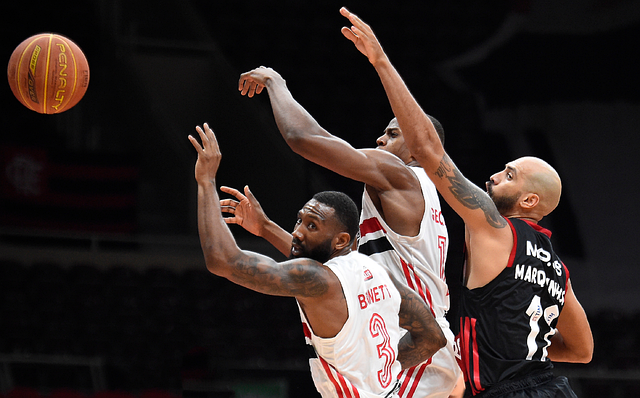Defining the Coach’s Role
Coaches shape championship teams by fulfilling key roles and demonstrating essential skills. They guide athletes both strategically and mentally, ensuring a well-rounded approach to competition.
Responsibilities and Expectations
Coaches manage multiple responsibilities essential for team success. They develop game strategies, plan practice sessions, and set performance goals.
They also evaluate individual athlete performance, providing personalized feedback to enhance skills.Coaches maintain team discipline, enforcing rules and standards uniformly.
They motivate players, fostering a positive and competitive environment. Coaches need to be keen observers, identifying strengths and weaknesses to make informed decisions during games.
Skills of Effective Coaches
Effective coaches possess a unique blend of skills crucial for leading teams. Communication stands out as a primary skill. Coaches need to convey strategies clearly, offer constructive feedback, and listen to athletes’ concerns.
Leadership skills are pivotal, as coaches need to inspire and unite the team. Adaptability is vital so they can adjust strategies based on game dynamics.
Problem-solving skills are essential for navigating challenges both on and off the field.
Understanding game mechanics and staying updated with industry trends help them stay competitive. Lastly, emotional intelligence allows coaches to manage team dynamics and build strong, trust-based relationships with athletes.
Leadership Styles in Coaching
Effective coaching depends heavily on leadership style. Understanding the differences in leadership approaches proves vital for shaping championship teams.
Authoritative vs. Democratic Coaching
Authoritative coaching emphasizes control. Coaches make decisions independently, setting clear expectations and rules. This method suits teams needing structure or when quick decisions are critical.
For instance, in time-sensitive game scenarios, authoritative coaches can efficiently direct actions.
Democratic coaching encourages input from athletes. Coaches using this style facilitate participative decision-making, valuing team members’ opinions and fostering a collaborative environment.
This approach enhances team cohesion and motivation. Players feel more invested when their voices contribute to the team’s strategies.
Situational Leadership in Sports
Situational leadership adapts to the team’s current needs. Effective coaches assess the team’s development stage, modifying their style accordingly.
For example, a coach might employ a directive approach with inexperienced players, offering detailed guidance and instructions.
Conversely, coaches can adopt a delegative style with a seasoned team, entrusting athletes with greater autonomy. This adaptability ensures that coaching methods align with the evolving dynamics and skill levels of the team, maximizing performance.
This blend of authoritative, democratic, and situational coaching provides a robust framework for developing championship teams.
Strategic Decision Making
Effective strategic decision making defines a coach’s capacity to lead a championship team. Commanding the nuances of game planning and in-game adjustments fosters winning outcomes and sustained success.
Game Planning and Strategy Development

Game planning initiates with a detailed analysis of opponent tendencies and team strengths. Coaches use data analytics, past game footage, and scouting reports to craft tailored strategies.
For example, if facing a team with strong defense, I might focus on quick ball movement and perimeter shooting.
Key components of game planning include:
- Scouting Reports: Detailed information on opponents’ strengths, weaknesses, and tendencies.
- Player Matchups: Identifying advantageous player pairings.
- Tactical Schemes: Developing offensive and defensive playbooks.
Customizing strategies to exploit opponent vulnerabilities and optimize team strengths underpins successful game planning.
Adjustments During Competitions
In-game adjustments test a coach’s adaptability and quick decision-making. I assess the game’s dynamic to make tactical changes, whether it’s modifying defensive schemes or altering player rotations.
Common in-game adjustments include:
- Defensive Switches: Changing defensive alignments to counter opponent strategies.
- Offensive Tweaks: Adjusting plays based on the defense encountered.
- Substitution Patterns: Rotating players to maintain energy and capitalize on matchups.
For instance, if the opponent shows effective zone defense, I might shift to a spacing offense with more outside shooting. Quick, strategic adjustments can shift game momentum and drive championship outcomes.
Coach-Player Relationships
Effective coach-player relationships are essential for building championship teams. Coaches foster these connections through trust, respect, communication, and feedback.
Building Trust and Respect
Trust and respect lay the foundation for successful teams. Coaches earn trust by showing consistency and integrity in their actions. For instance, they honor commitments and maintain transparency in decision-making.
Respect grows when coaches treat players fairly, considering individual needs and strengths. Acknowledging accomplishments and addressing areas for improvement directly shows a commitment to each player’s development.
Communication and Feedback Mechanisms
Communication is vital for understanding and collaboration. Coaches use clear, direct language to articulate goals and expectations. Regular team meetings ensure everyone remains aligned with the team’s objectives.
Feedback mechanisms, including one-on-one sessions and performance reviews, enable ongoing improvement.
Positive reinforcement motivates players, while constructive criticism guides them toward better performance.
Effective communication and feedback help coaches and players stay connected and responsive to each other’s needs, driving overall team success.
Case Studies of Successful Coaches
Successful coaches employ unique strategies to guide their teams to championships. Below, I’ve detailed the key strategies renowned sports coaches use and analyzed a few championship-winning teams.
Key Strategies Used by Renowned Sports Coaches
- Phil Jackson’s Triangle Offense
Phil Jackson, a legendary NBA coach, used the Triangle Offense to great effect. This strategy relies on constant motion and spacing to create high-percentage shots. Jackson emphasized teamwork and unselfish play, leading the Chicago Bulls and Los Angeles Lakers to multiple championships. - Bill Belichick’s Defensive Versatility
Bill Belichick, known for his defensive genius, adapts his game plans to exploit opponent weaknesses. By utilizing versatile players who can perform multiple roles, Belichick keeps opponents guessing. His meticulous preparation and film study have resulted in six Super Bowl wins with the New England Patriots. - Sir Alex Ferguson’s Man-Management
Sir Alex Ferguson, a long-time manager of Manchester United, focused on strong man-management skills. He built trust and respect by involving players in decision-making and providing clear expectations. Ferguson’s ability to manage egos and maintain high standards contributed to numerous Premier League and UEFA Champions League titles. - Chicago Bulls (1990s)
The Chicago Bulls dominated the NBA in the 1990s under Phil Jackson. The Triangle Offense, combined with Michael Jordan’s leadership, created an unbeatable synergy. Jackson’s ability to manage star players and maintain team focus proved crucial, resulting in six NBA championships. - New England Patriots (2000s)
Bill Belichick’s New England Patriots showcased adaptability. His defense could shift strategies mid-game, confusing opponents. Belichick’s trust in quarterback Tom Brady to execute game plans led to six Super Bowl victories, highlighting the importance of coach-player collaboration. - Manchester United (2000s)
Managed by Sir Alex Ferguson, Manchester United achieved success through a blend of discipline and flair. Ferguson’s emphasis on youth development, coupled with tactical nous, established a winning culture. The team’s numerous trophies demonstrated the effect of great leadership and strategic execution.
These case studies underscore the critical role of coaches in shaping championship teams, highlighting diverse strategies and the importance of adapting tactics to maximize team strengths.


